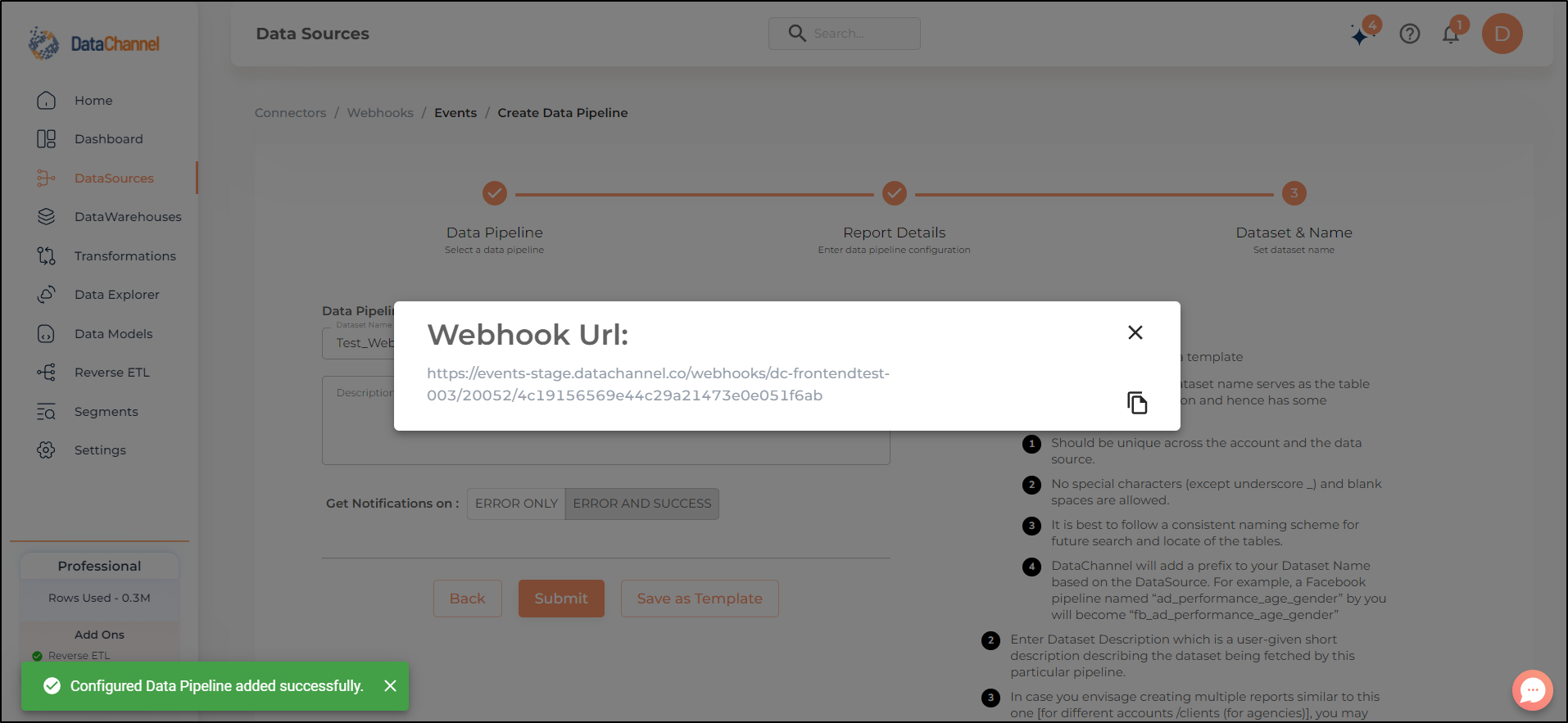Events
Webhook events are how a platform/service such as Facebook, Flipkart, Leadsquared, and more notify you of a variety of interactions or events happening. These notifications are sent using POST requests. The Events pipeline can be used to request and retrieve event details from any platform (that supports webhooks).
Setting Parameters
| Parameter | Description | Values |
|---|---|---|
Do you want to flatten the JSON? |
Required Specify whether the incoming JSON should be flattened or not. Please note, irrespective of your choice here, the entire data will be stored in the all_data field for easy access. |
{Yes, No} |
Is inference required? |
Optional Specify whether to store the incoming data as it is by selecting No, or cast them to their proper data types such as integers, numeric, and more by selecting Yes. |
{Yes, No} |
Configuring the webhook
Copy the newly generated webhook and do the following
-
Go to the platform you want to access the events data from.
-
Enter the credentials
-
Go to "Add a webhook" or equivalent
-
Paste the newly generated webhook into the "Payload URL" or equivalent
-
Select the "Content Type" as JSON
-
Input other fields such as Secret, SSL verification, Which events you want to trigger, etc.
-
Save and you are good to go

Datapipeline Scheduling
Scheduling specifies the frequency with which data will get updated in the data warehouse. You can choose between Manual Run, Normal Scheduling or Advance Scheduling.
- Manual Run
-
If scheduling is not required, you can use the toggle to run the pipeline manually.
- Normal Scheduling
-
Use the dropdown to select an interval-based hourly, monthly, weekly, or daily frequency.
- Advance Scheduling
-
Set schedules fine-grained at the level of Months, Days, Hours, and Minutes.
Detailed explanation on scheduling of pipelines can be found here
Dataset & Name
- Dataset Name
-
Key in the Dataset Name(also serves as the table name in your data warehouse).Keep in mind, that the name should be unique across the account and the data source. Special characters (except underscore _) and blank spaces are not allowed. It is best to follow a consistent naming scheme for future search to locate the tables.
- Dataset Description
-
Enter a short description (optional) describing the dataset being fetched by this particular pipeline.
- Notifications
-
Choose the events for which you’d like to be notified: whether "ERROR ONLY" or "ERROR AND SUCCESS".
Once you have finished click on Finish to save it. Read more about naming and saving your pipelines including the option to save them as templates here
Still have Questions?
We’ll be happy to help you with any questions you might have! Send us an email at info@datachannel.co.
Subscribe to our Newsletter for latest updates at DataChannel.